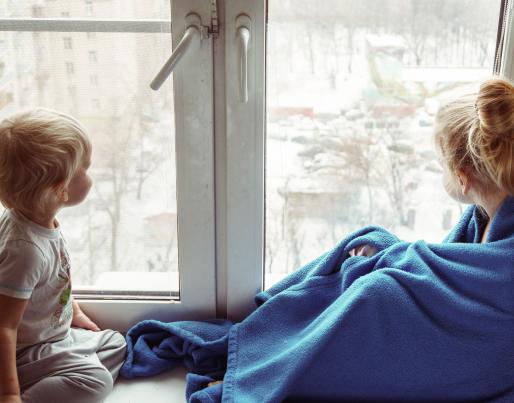
When heating is a luxury: countering energy poverty to save the planet

When heating is a luxury: countering energy poverty to save the planet
Social housing associations and EU projects are countering energy poverty with innovative financial schemes and “solidarity mechanisms”: “Buildings refurbishment benefits both the people and the Planet. Social and environmental fights go hand in hand”
Author: Diego Giuliani
After working all of his life as a sound technician for the Bulgarian state television, Emil is now retired. He lives in a 120 square meter house in Gorni Lozen, a village not far from Sofia, but only uses its ground floor and basement because he can’t afford to heat the whole of it. “I have a wood stove and some electric radiators, but I tend not to use them, because otherwise, once I have paid my electricity bill, I have no money left for filling my fridge,” he says. Unlike Emil, Mariana isn't lucky enough to own the apartment she lives in with her two teenage sons. She is a teacher, but since her salary goes mostly for paying the rent, she has long given up switching the heating on. Lilly Stammler, a chief expert at Sofena, a Bulgarian ONG providing counselling and assistance on energy efficiency says: “From December to March, it is so cold in some parts of the country that every winter we register people dying from cold-related complications because they cannot heat their homes.”
“Before the energy crisis, more than one-third of the population suffered from energy poverty. No national statistics are officially available, but these figures might have significantly risen since,” says Stammler. Due to a combination of factors, together with Greece, Bulgaria is among the European countries most hard hit by energy poverty. “Even though the energy tariffs are largely guaranteed by the government, big segments of the population are economically weak.” Additionally, most of the building stock dates back to the Communist era, when electricity was cheap and energy efficiency still far from being an issue. “The problem is that to be heated properly, these buildings should now undergo full and very expensive renovations, which are unaffordable for their tenants,” adds Stammler. But Bulgaria is far from being alone in facing these problems: two years ago, some 36 million Europeans were unable to keep their homes adequately warm, and in 2020, the European Commission already recommended the “structural renovation of private and public buildings” to address energy poverty.
“When energy is expensive and buildings are not energy efficient, the first thing that low-income tenants do, is to switch the heating off,” says Paola Zerilli, coordinator of Super-I, a European project aimed at countering energy poverty through efficiency refurbishment in the social housing sector. “The goal of our actions is to help them cut their costs and improve their quality of life.” After gathering the technical and environmental data of several pilot buildings in Denmark, Slovenia, and Italy, the project’s experts suggest interventions like insulation and installation of solar panels and the most adapted schemes to fund them. “We analyse the local specificities, envisage different scenarios, and then calculate the required investment, the energy savings, and the financial benefits of each solution,” says Zerilli. Crucial in this strategy are public-private partnerships, allowing the financial risk of the social housing associations to be shared with energy service companies or financial institutions. “Their involvement makes the investment safer and the refurbishment easier, but the key thing is that they can benefit too.”
Read the original source
Project coordinator:
Dr. Paola Zerilli - University of York: paola.zerilli@york.ac.uk
Communication Manager:
Alice de Ferrari : alice.deferrari@icons.it

